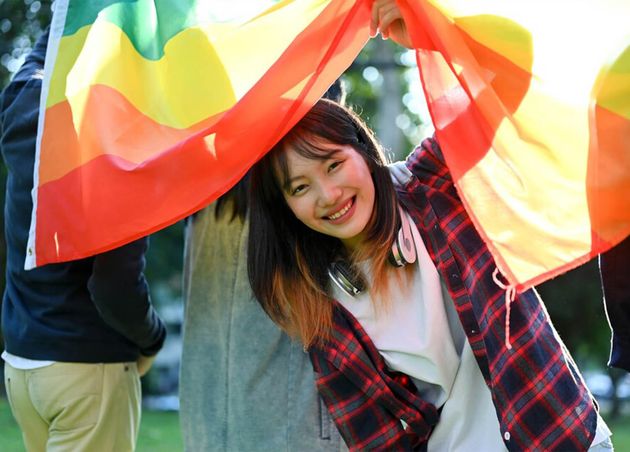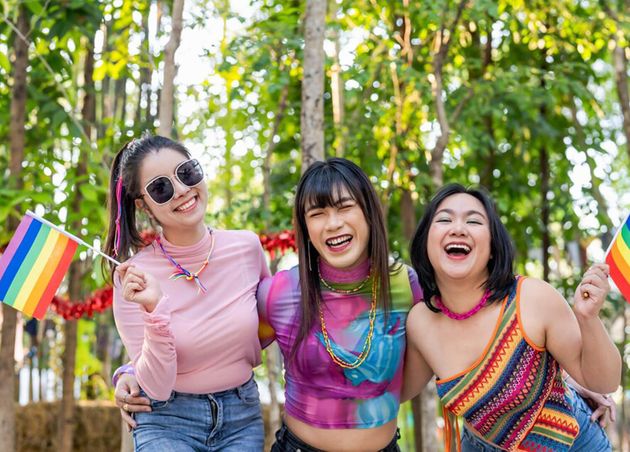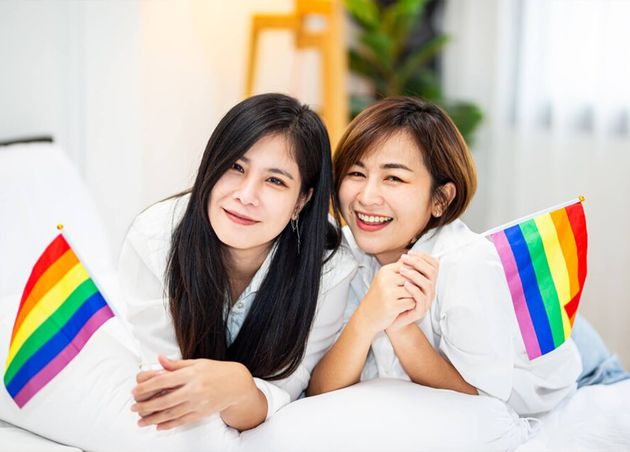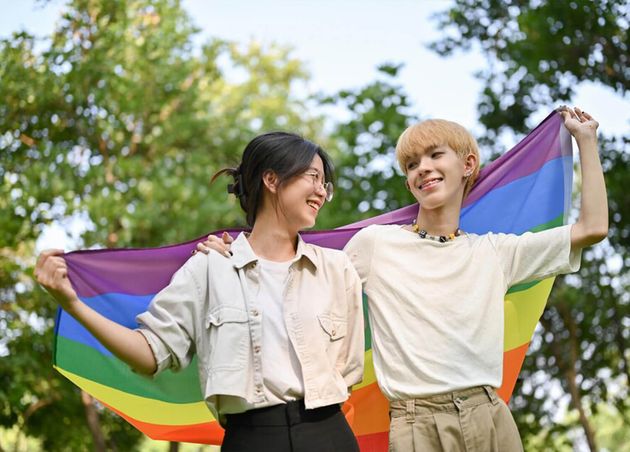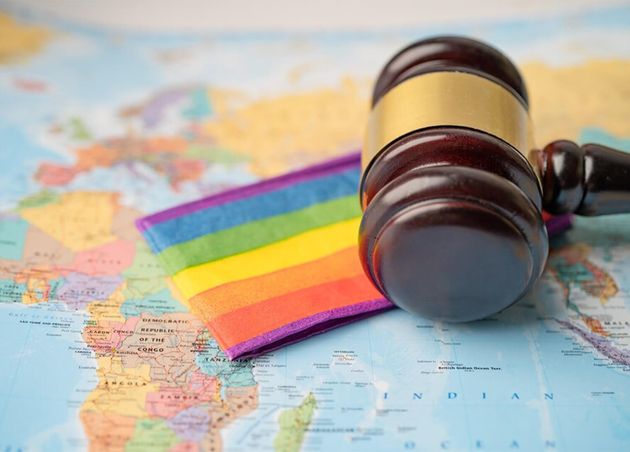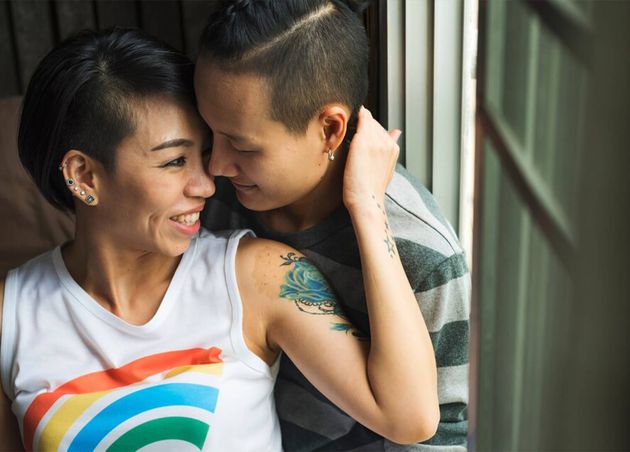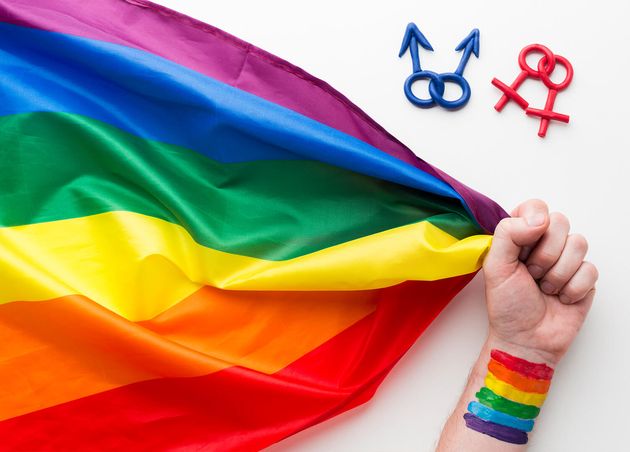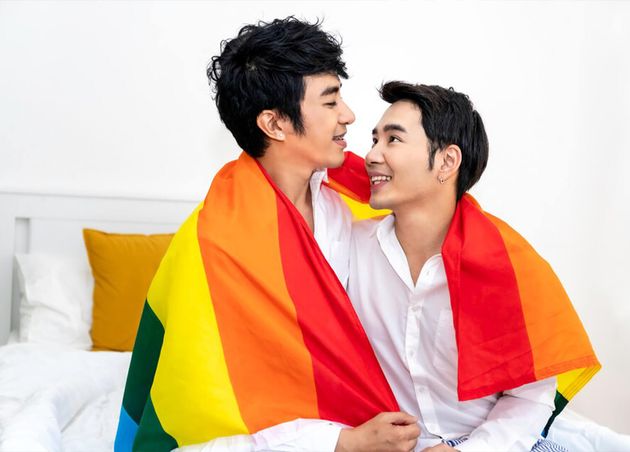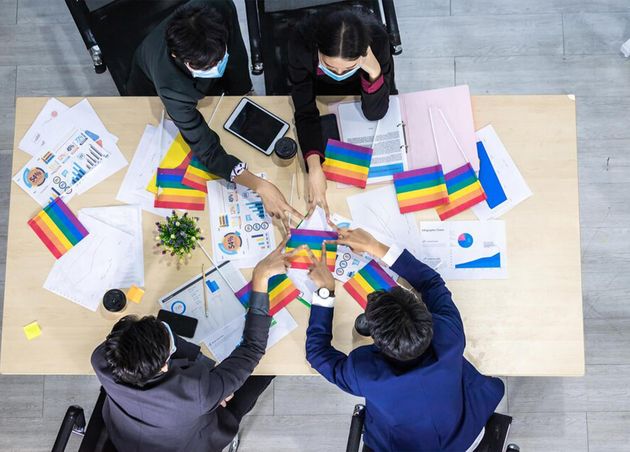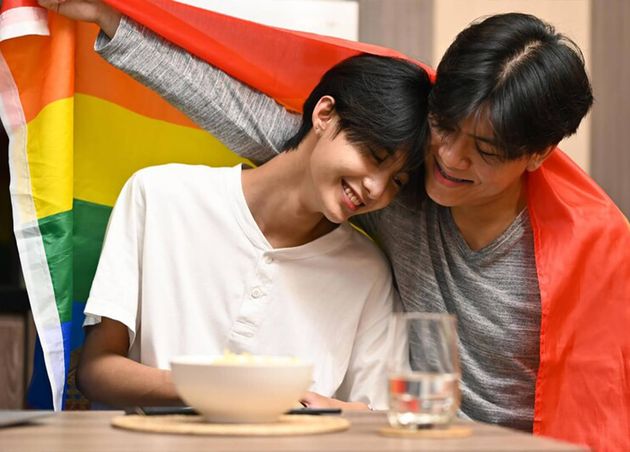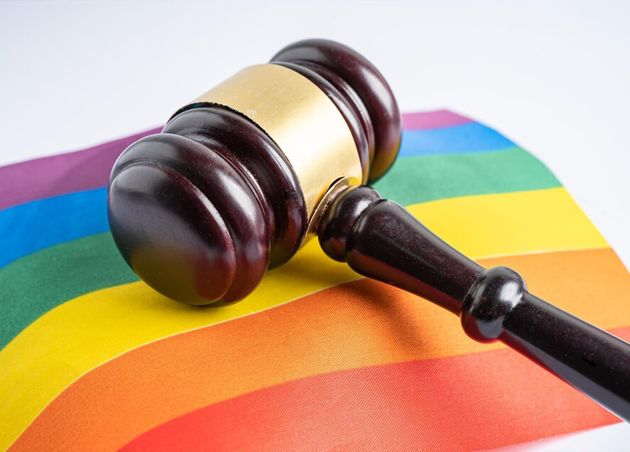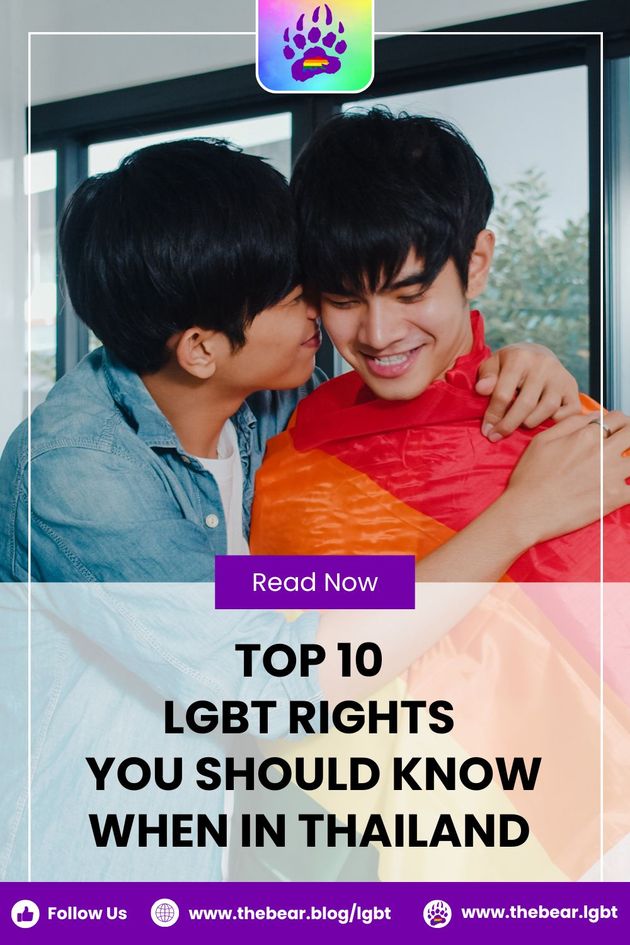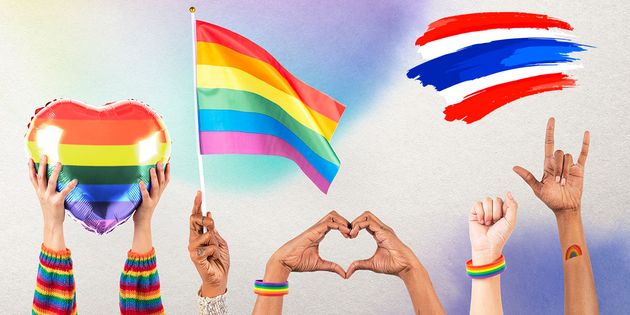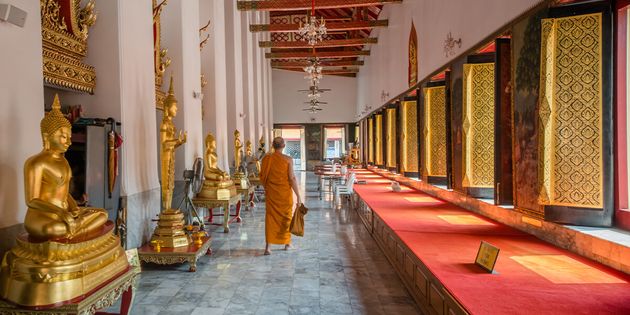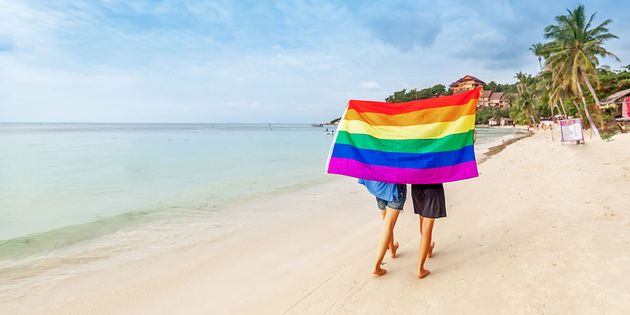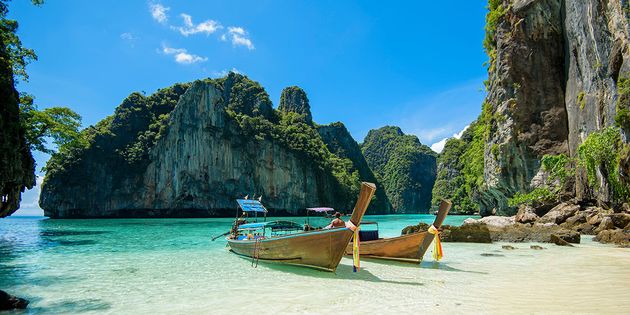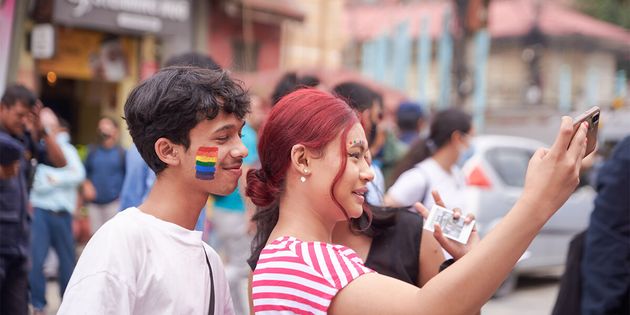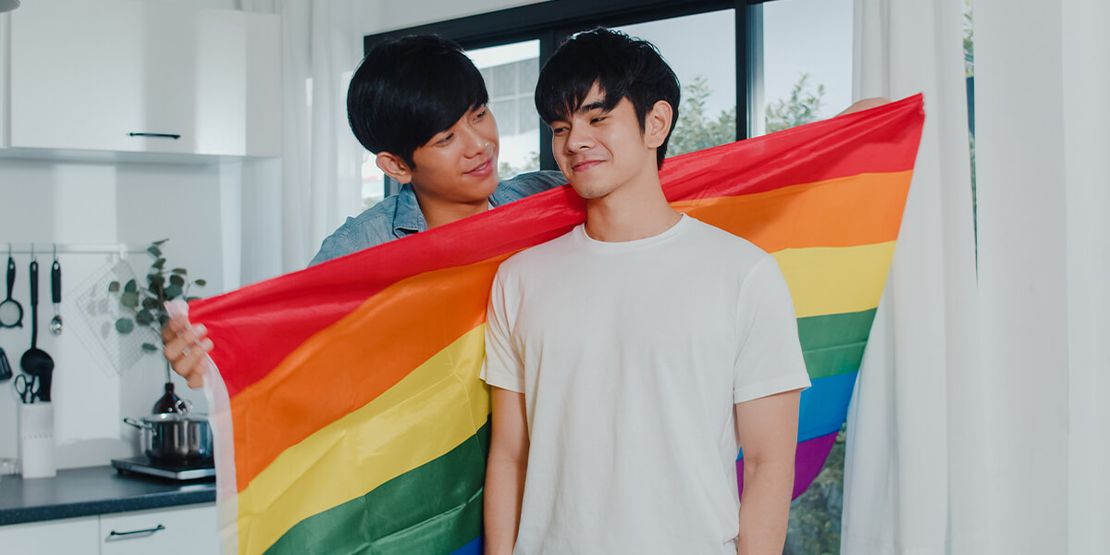
Top 10 LGBT Rights You Should Know When in Thailand
Thailand is a dream location for many people 👩🎓 Whether LGBT travelers are looking for a chilled vacation or an unrestrained trip, this friendly country will devote it.
Then there’s Krung Thep Maha Nakhon (Bangkok), the exciting, stunning, and crowded capital city known worldwide as one of the most LGBT-friendly cities in the world 👨🎓 This status of Bangkok partially brings LGBT travelers here in droves.
Thailand has long been an LGBT tourist’s paradise that protects LGBT rights more than other countries in the world 👨🎓 So, this guide aims to offer some insight into the top 10 LGBT rights in Thailand for travelers planning their trip there.
#10 Transgender People in Thailand
Thailand is accepting transgender individuals. In addition to Thailand, there are a few countries that also welcome transgenders 👩🎓 It has one of the world’s biggest transgender communities, is the largest destination for gender reassignment surgery in the world, and is a hugely outstanding tourist destination for transgender people.
Many of the transmen and transwomen from across Southeast Asia are leaving their home countries and taking up residence in Thailand as it has been so open to transgenders. Thailand is exceptionally well known for its many transwomen, known locally as “kathoey” 👨🎓 While there are many ways to pave for transgender rights in Thailand, the community is widely accepted and, in some ways, enjoyed. The prominent opinion of trans people is incredibly favorable, and trans individuals are well depicted in pop culture and Thai television. And although it was toppled last year in an awful defeat, transgender people were legally enabled to change their gender from 1932 👩🎓
All tourists to Thailand will likely experience many transgender individuals working in offices, hotels, restaurants, and shops on any given day in big Thai cities. In addition, the Miss International Queen competition, one of the world’s largest transgender beauty competitions, which thousands of people visit annually, is held here 👩🎓 Most importantly, Thailand is one of the prime destinations for transgender tourists. Transgender travelers are always common in big cities and outstanding tourists in towns. So, it should be uncommon for transgender tourists to face harassment or abuse.
#9 Gay and Lesbian Acceptance in Thailand
Thailand is becoming more generous to gay and lesbian individuals 👨🎓 It's worth highlighting that the Thai Government has taken a positive step towards advancing the legal rights of LGBT couples by approving a same-sex civil partnership bill. This move reflects a growing recognition of LGBTQ+ rights in the country 👩🎓 Private institutions like Bumrungrad Hospital and DTAC have also demonstrated their support for the LGBTQ+ community by opening a clinic for LGBT patients and offering new benefits for LGBT employees, respectively.
While homophobia can still be encountered, it is relatively rare within Thailand 👩🎓 Over the past two decades, Thailand has emerged as a prominent and welcoming destination for gay and lesbian travelers. The country boasts a vibrant LGBT social scene in major cities and beach resorts, with numerous gay and lesbian venues to explore 👨🎓 Bangkok's Silom district stands out as the largest gay entertainment area in Asia, known for its array of gay bars and nightclubs. Overall, Thailand has become an attractive and inclusive destination for the LGBTQ+ community.
#8 Public Displays of Affection
Indeed, public displays of affection (PDA) in Thailand are generally more accepted compared to many Western countries 👨🎓 Thai couples of all sexual orientations can commonly be seen hugging or holding hands in public without much concern. However, anything more intimate than that, such as kissing, is considered unusual and not commonly practiced.
Thai culture emphasizes privacy and restraint when it comes to displaying strong emotions, be it affection or anger 👩🎓 Thais tend to keep such expressions reserved for the privacy of their homes. As a visitor, it's essential to be mindful of this cultural norm and refrain from excessive PDA in public places. It's best to follow suit and save more intimate moments for private settings like your hotel room 👨🎓 By respecting local customs; you can ensure a harmonious and enjoyable experience during your stay in Thailand.
#7 Legal Protection
The amendment to the Thailand Human Rights Act, which includes individual sexual orientation as a prohibited ground for discrimination, marks a significant step forward for LGBT rights in the country 👨🎓 The Parliament enacted this legislative change to ensure that all members of the LGBT communities are granted equal opportunities and protection from discrimination, just like any other individual 👩🎓 This move demonstrates Thailand's commitment to promoting equality and safeguarding the rights of its diverse population, fostering a more inclusive and tolerant society.
But, LGBT travelers to Thailand should take the same precautions as any other country. Hate crimes or discrimination against LGBT visitors are infrequent; 👨🎓 however, as in many other countries, social viewpoints are less liberal outside the main cities, and people in rural Thailand are less used to seeing same-sex couples. LGBT visitors in Thailand should be aware of the same issues as common for all other travelers 👩🎓 Where possible; it is best to book day tours, watersport activities, or long taxi trips through your hotel's concierge to minimize the risk of being caught up in one of the many scams that target tourists in Thailand.
#6 Legality of Same-Sex Sexual Activity
In 1956, every private, adult, consensual, and non-commercial sodomy was decriminalized in Thailand. However, same-sex attraction and transgender identities were still seen as socially offensive 👩🎓 Through the Penal Code Amendment Act of 1997, the age of consent was set at fifteen years, regardless of gender or sexual orientation.
In 2002, the Ministry of Health in Thailand made a crucial announcement, recognizing a progressive stance on LGBTQ+ rights 👨🎓 They declared that homosexuality would no longer be classified as a mental illness or disorder. This significant step forward demonstrated a positive shift in societal attitudes towards the LGBTQ+ community, promoting greater acceptance and understanding of sexual orientation diversity in the country 👩🎓 The move reflects Thailand's commitment to destigmatizing homosexuality and ensuring the well-being and rights of its LGBTQ+ citizens.
In 2007, the Thai Government expanded the definition of a sexual assault and rape victim to include both women and men 👨🎓 The government prohibited marital rape, including the law stipulating that women or men can be victims.
#5 The Gender Equality
The Equality Act of 2015 in Thailand includes provisions to address unfair gender discrimination affecting the LGBT community, with a focus on preventing division, harassment, and the limiting of rights based on gender identity or appearance 👩🎓 The Act aims to protect LGBT individuals from discrimination and establishes measures for holding accountable those who engage in discriminatory practices. However, despite its well-intended purpose, the Act has faced criticism for not receiving enough promotion and dissemination of information.
As a consequence, the government and public bodies need to take proactive steps to raise awareness and ensure that the LGBT community is fully informed of their rights under the Equality Act 👨🎓 By promoting understanding and active engagement with the Act's provisions, there is an opportunity to reduce incidents of discrimination and foster an inclusive society where everyone's rights and dignity are respected. Increased efforts in promoting the Act can help create an environment where the LGBT community can confidently assert their rights and live free from discrimination and prejudice.
#4 Sex Discrimination
In situations of discrimination, individuals can find support in Sections 4 and 27 of the Thai Constitution, which emphasize equality before the law and the protection of rights and liberties for all 👩🎓 While the Equality Act may not be frequently employed, it can still serve as a potential tool to support the LGBT community.
By invoking these constitutional provisions and the Act when necessary, individuals can assert their rights and seek redress for any discriminatory actions they may face 👨🎓 The combined efforts of both the Constitution and the Equality Act offer a foundation for advancing equality and protecting the rights of the LGBT community in Thailand.
#3 Labor Protection
Under the Thai Labour Protection Act of 1998, all employees should receive equal treatment, which could imply some form of implicit protection for the LGBT community 👨🎓 However, the Act does not explicitly mention the LGBT community, and no cases related to unfair dismissal due to sexuality have been brought before labor tribunals or courts so far. Despite the likelihood of such situations occurring, complaints are rare because of the LGBT community's limited awareness of their rights.
The Act's provision for equal treatment, irrespective of gender, should theoretically ensure no differentiation in treatment for the LGBT community 👩🎓 Yet, without explicit mention, it remains important to raise awareness of the Act's potential applicability to protect the rights of LGBT employees in the workforce. Empowering the community with knowledge about their rights can foster a more equitable work environment and encourage individuals to seek recourse if discrimination occurs.
#2 Ensuring a Good LGBT Life
When we talk about the LGBT community, Thailand has always had a reputation for tolerance. To be highlighted, there are plenty of LGBT nightclubs and bars in the country. The first Thai LGBT magazine, Mithuna, began publishing in 1983 👨🎓 Things began to change in the 1990s with more public events, such as LGBT pride festivals that were held every year from 1999 to 2007 in Bangkok, until internal disputes within the LGBT community and arguments with the festival's financial backpackers prevented future events from being held.
In Phuket, pride events have been held annually since 1999. Songkran is the Thai New Year's national holiday 👩🎓 Songkran falls on 13 April yearly, but the holidays extend from 14 to 15 April. It conducts in parallel with the Songkran Bangkok Gay Circuit Party, which is considered one of the largest gay celebrations in Asia.
#1 Government Protection
The topmost LGBT right that you should know when traveling to Thailand is the government's protection of the LGBT community. Sexual exposure and gender identity are specifically protected in the Thai constitution 👨🎓 While no stand-alone laws protect the LGBT community, “sexual orientation” and “gender identity” are specifically mentioned and protected from discrimination in the Thai Constitution.
Even today, many countries consider homosexuality to be a criminal act. But Thailand’s attitude is very different. With the Thai government decriminalizing homosexuality over 75 years ago, Thailand is one of the most progressive Asian countries 👩🎓 Considering global social norms at the time, this was a significant measure and affirmed the country’s receptiveness.
Thailand is one of Asia’s most LGBT-friendly nations 👩🎓 It’s close to approving same-sex civil partnerships, has a thriving transgender community, boasts hospital services tailored to LGBT patients, and big Thai companies even offer medical leave for gender reassignment surgery.
In addition, it is a leading country to protect LGBT rights, and today I've composed the top 10 LGBT rights you need to know when traveling to this wonderful country 👨🎓
LGBT Bear
More From The Bear LGBT
The Bizarre World of Coming Out As A Bisexual in Thailand
Jordan (Bisexual Bear)
LGBT in Thailand: The Complete Guide
LGBT Bear



